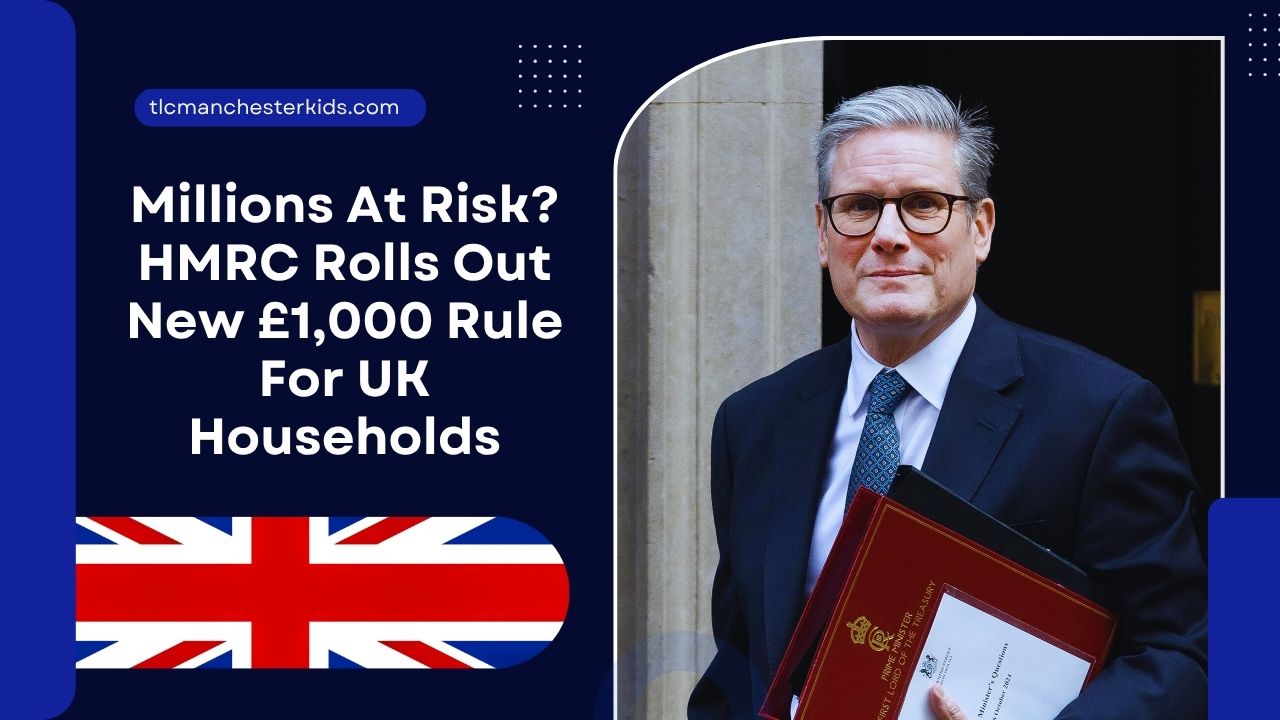HM Revenue and Customs (HMRC) has introduced a new £1,000 reporting threshold, sending shockwaves through millions of UK households who sell goods or rent spaces online. From 2025, popular platforms like eBay, Airbnb, Vinted, Etsy, Depop, and Facebook Marketplace will be required to report seller earnings directly to HMRC.
This move is part of a global transparency push led by the Organisation for Economic Co-operation and Development (OECD).
While the rule doesn’t introduce new taxes, it does mean more people could face scrutiny from HMRC if they exceed the £1,000 trading allowance and fail to declare their income.
What Is the £1,000 Rule?
The £1,000 trading allowance allows individuals in the UK to earn up to £1,000 per year tax-free from casual or occasional trading—such as selling on eBay or renting out a room through Airbnb.
However, if your gross income from these activities exceeds this threshold, you must declare it to HMRC and potentially pay Income Tax and National Insurance on the profits.
What’s Changing in 2025?
The key change is not the trading allowance itself, but the new reporting obligations for online platforms. HMRC will now automatically receive data from these digital marketplaces, which includes:
- Seller identity
- Number of transactions
- Total sales (gross income)
- Bank account details
This allows HMRC to cross-check declared income and identify undeclared earnings, which could trigger compliance letters or investigations.
Platforms Affected by the Rule
If you earn money from any of the following platforms, your data will be shared with HMRC if you exceed the threshold:
| Platform | Type of Activity Tracked |
|---|---|
| eBay | Selling goods |
| Vinted / Depop / Etsy | Selling second-hand clothes and crafts |
| Airbnb | Property rental income |
| Facebook Marketplace | Selling furniture, electronics, etc. |
| Fiverr / Upwork | Freelance services |
Even though these platforms are used by casual sellers, once you cross the £1,000 line, HMRC wants a full report—and they will get it.
Clarifying the Confusion: What’s Taxable and What’s Not?
Not all earnings are taxable under this new scrutiny. Selling personal items, like your child’s outgrown clothing or old furniture, is generally not considered trading, even if you earn more than £1,000.
Here’s a general guide:
| Scenario | Taxable? |
|---|---|
| Selling old personal belongings occasionally | No |
| Regularly buying and selling items for profit | Yes |
| Renting your property or spare room on Airbnb | Yes (over allowance) |
| Providing freelance services on Fiverr or Upwork | Yes |
| Casual garage sale once a year | No |
The key distinction is whether you’re trading or just decluttering. If you’re making money regularly with the intention of profit, HMRC considers it taxable income.
How Much Could You Owe If You Don’t Report?
Once you go over the £1,000 threshold, you’re required to:
- Register for Self Assessment
- Report your earnings
- Pay Income Tax and potentially Class 2 and 4 National Insurance
Here’s an example of how it might look:
| Gross Income | Expenses Claimed | Taxable Profit | Estimated Tax Due (20%) |
|---|---|---|---|
| £2,500 | £500 | £2,000 | £400 |
| £3,500 | £1,000 | £2,500 | £500 |
Failing to report may result in penalties, interest, and in some cases, investigations.
Why This Matters for Millions of Households
Millions of Britons use online platforms for side income. Whether it’s clearing out old belongings, crafting goods on Etsy, or renting out a spare bedroom, the line between hobby and business is now more closely monitored.
With platforms obligated to report your income, HMRC no longer relies solely on your honesty—they will already have the data.
How to Stay Compliant and Avoid Penalties
To avoid issues:
- Track your sales across all platforms
- Keep records of expenses and receipts
- Know when you’re crossing into trading territory
- Use the trading allowance only if your earnings stay under £1,000
- Register for Self Assessment if you exceed the threshold
You can also get help from an accountant or HMRC’s online tools to estimate taxes.
The new £1,000 HMRC rule isn’t about taxing more—it’s about improving transparency and ensuring compliance. With platforms like eBay, Etsy, and Airbnb now required to report your earnings, it’s important to know the difference between casual selling and taxable trading.
If you’re under £1,000, you’re likely safe. But if you’re close or over, it’s time to review your activities, keep proper records, and declare your income properly. In 2025, the HMRC will be watching—make sure you’re not caught off guard.
FAQs
Do I need to report income under £1,000 from online selling?
No, if your gross income is under £1,000, you’re covered by the trading allowance and don’t need to report it—unless you’re also self-employed for other reasons.
What happens if I exceed the £1,000 threshold and don’t report it?
HMRC could send you a compliance letter, issue fines, or start an investigation if your earnings are flagged through platform reports.
Are casual sales like old toys or clothes taxed?
Usually not. If you’re not trading for profit and just selling personal items occasionally, the income is not taxable even if it’s significant.




